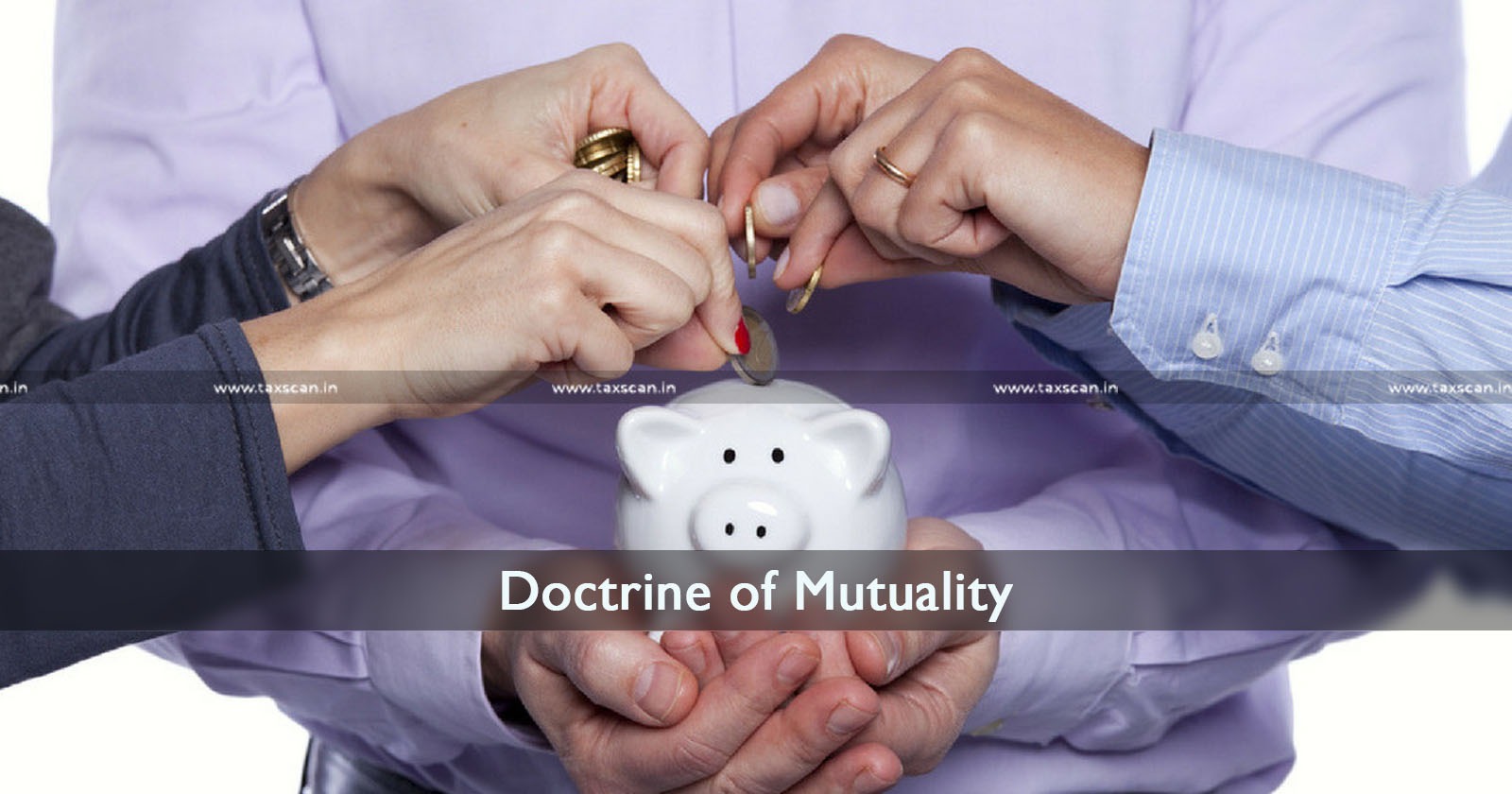Kerala High Court restores Doctrine of Mutuality

Kerala High Court – Doctrine of Mutuality – taxscan
Kerala High Court – Doctrine of Mutuality – taxscan
The taxation history of clubs had come a full circle with the landmark judgment of Supreme Court in the State of West Bengal vs Calcutta Club Ltd – (2019) 19 SCC 107 wherein it has been held that the Principle of Mutuality survives even after the 46th Constitutional amendment which was brought in for the purpose of empowering states to levy tax on supply of food and other goods by club to its members. By upholding mutuality, the thereto Service Tax demands on clubs also came to be quashed.
The judgment thus posed challenges for levying GST on activities of ‘clubs’, which was sought to be undone in 2021, by bringing in a statutory amendment to GST law by inserting Section 7(1)(aa) through the Finance Act, 2021. This amendment specifically intended to tax internal club transactions by legally deeming an association and its members as two separate entities. More significantly, the government sought to apply this change retrospectively, from July 2017, when GST first came into force and the amendment categorically provided that the fiction of club and members as distinct persons would remain so notwithstanding anything contrary held in any judgment.
The first challenge to the amendment came from Indian Medical Association, Kerala Branch. For many years, they had functioned as more than a mere professional organisation, representing network of doctors committed to mutual welfare, extending support to fellow practitioners and their families in times of difficulty, illness, death, or legal troubles. Members contributed admission/annual fee that were pooled and utilised exclusively for these mutual assistance purposes. No registration had been taken under GST on bonafide belief that the transactions are entitled for exclusion under the principle of mutuality. With the amendment, associations like IMA faced the possibility of heavy tax demands covering several prior years.
The IMA challenged this amendment before the Kerala High Court, asserting that the tax demand was unconstitutional. Initially, the Single Judge hearing the case held partially in IMA's favour. He agreed that the retrospective application was unfair and arbitrary because taxpayers cannot be punished for relying on established law. However, he upheld the constitutional validity of the amendment itself, allowing GST authorities to tax future transactions between clubs and their members holding that the amendment carried out in GST Act is sufficient to enable legislature to levy GST on activities /transactions of clubs.
Both parties appealed against this decision. The government argued for full retrospective application, while IMA insisted that the amendment itself violated constitutional principles and could not stand even prospectively. A Division Bench of Kerala High Court carefully examined these appeals.
In its analysis, the Court began by noting, referring to Section 7(1)(aa) of the CGST Act, 2017, that while legislatures are empowered to make laws that remove the basis of judicial decisions, that power is not unlimited. The question was not whether the legislature could override a Court’s interpretation through a new law. Rather, it was whether the legislature could define a taxable transaction in a manner that contradicts what the Constitution itself recognises as a taxable event. The meaning of ‘taxable event’ as understood by Constitution was thus sought to be gathered from Articles of constitution dealing with the GST levy itself. The Court observed that under the constitutional framework for GST, a supply requires two distinct persons. This understanding is embedded in Article 366 (12A) of the Indian Constitution, which defines GST as a tax on the supply of goods or services or both. The basic concept of a supply presumes one person providing something to another. It cannot exist where there is only one legal person.
This principle was at the heart of the mutuality doctrine. It was not just a matter of statutory interpretation. It had become a constitutional principle through repeated recognition by the Courts, including the Supreme Court. Therefore, any attempt to override it could not be done by simply amending the statutory provisions. It would require a constitutional amendment.
The Court found that Section 7(1)(aa) of the CGST Act, 2017 and its explanation attempted to overcome the mutuality barrier through an amendment to the Act. By deeming that a club and its members were two different persons, the legislature sought to create an artificial taxable event where the Constitution did not allow one. The Court was clear that such a legal fiction could not be allowed to stand. It held that Parliament had exceeded its legislative competence in enacting this provision.
After considering all these factors, and reiterating the judgment in Calcutta Club case, the Court concluded that the amendment suffered from a clear lack of legislative competence. It held that Section 2(17)(e), Section 7(1)(aa) of the CGST Act, 2017 and the Explanation, introduced by the Finance Act, 2021 were unconstitutional. These provisions were declared void being ultra vires the provisions of Articles 246A read with 366 (12A), and 265 of the Constitution of India.
However, the Court reiterated the Single Judge's finding on retrospectivity, emphasising its unfairness. They agreed that it was impossible and unreasonable to expect associations like IMA to have collected GST for past periods when there was clearly no legal obligation to do so at the time. Thus, even independently, the retrospective aspect of the amendment was found unconstitutional.
By holding Section 7(1)(aa) unconstitutional, the Court firmly established critical constitutional limits on legislative power. The Court reminded Parliament and authorities that taxation powers, though broad, must operate within the clear boundaries set by constitutional provisions.
It may be borne in mind that the judgment is binding only with respect to services provided to members and not to all supplies made by a club. The judgment, for time being is binding on tax authorities of jurisdictional state and has only persuasive value for other States. Also, the department is certain to approach the Apex Court and the issue will attain finality only when a verdict is given by Apex Court analysing the provisions in the background of history of law from judgment in Joint Commissioner Vs. Young Men’s Indian Association - 1970 AIR 1212.
Before parting:
The judgment prompts a deeper reflection on the use of deeming fictions in GST law. Section 25(4) of the CGST Act, 2017, treats establishments of the same legal entity with separate registrations, even within the same state as distinct persons. Schedule I of the Act goes further to tax stock transfers between such branches as supplies, even in the absence of consideration.
The Kerala High Court has now clarified that under the Constitution, a supply presupposes two distinct persons. If a statutory fiction that treats a club and its members as separate entities is unconstitutional for want of two persons, a similar question may arise for branch transfers that rely purely on statutory constructs to create taxability.
While the Court did not examine this issue, its reasoning may open the door for re-examining whether certain legislature imparted GST fictions, though convenient, truly align with the constitutional understanding of supply.
[1] Indian Medical Association vs Union of India - (2024) 20 Centax 525 (Ker.)
[2] Indian Medical Association, Kerala State Branch vs. UOI and Ors. – (2025) 29 Centax 232 (Ker.).

Adv. Naveenkumaar S is a graduate of Jindal Global Law School with 4 years of experience in Indirect Taxation. He regularly represents clients before various quasi-judicial authorities across India and is currently part of the team at Swamy Associates.
Support our journalism by subscribing to Taxscan premium. Follow us on Telegram for quick updates

